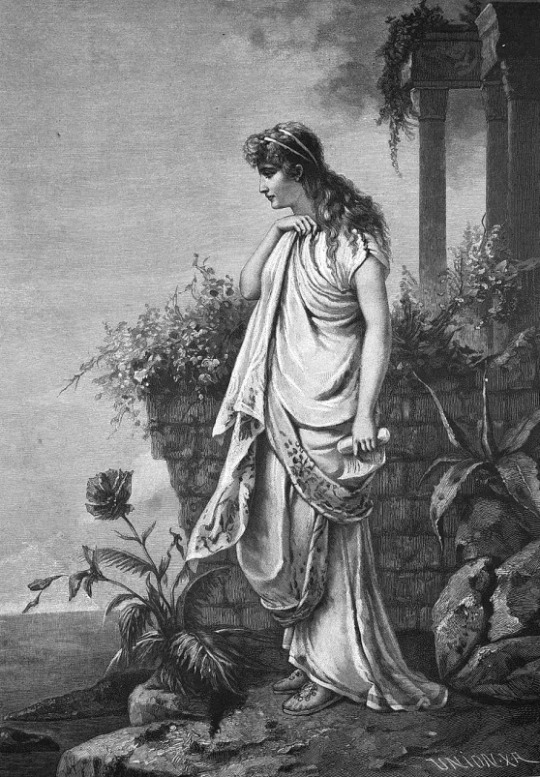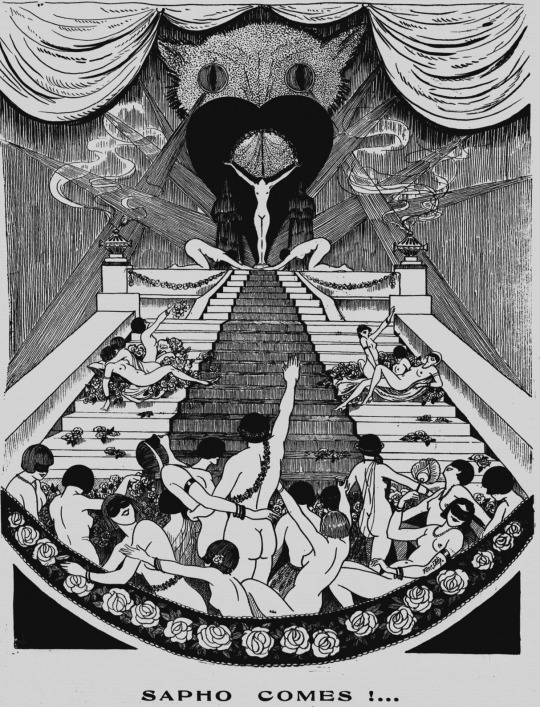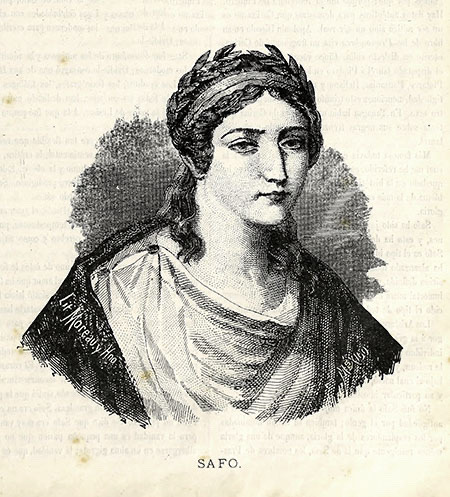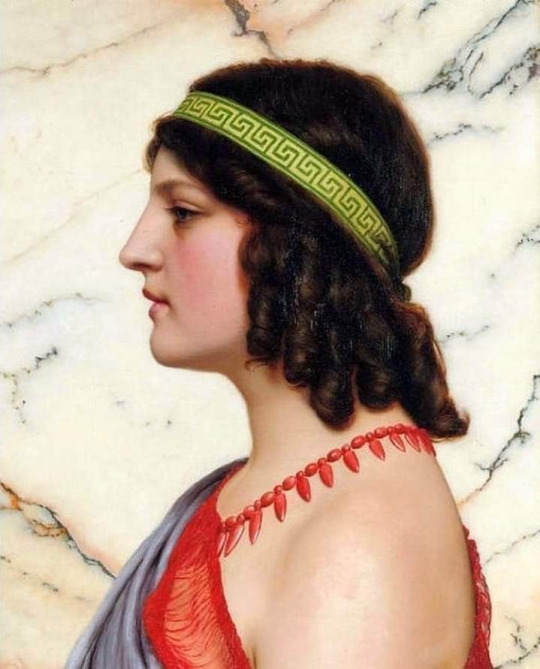#josephine balmer
Explore tagged Tumblr posts
Text

Sappho, from Sappho: Poems & Fragments (tr. Josephine Balmer)
870 notes
·
View notes
Note
I'm sorry but "Sappho wannabe" is the BEST first impression I've had of anyone ever
Thanks! And is 100% true.
I’m obsessed with her, she’s actually my favorite writer.




#she’s so#I can talk about her forever#book recs on her bc why not#poems & fragments#translated by Josephine Balmer#good translation good introduction includes the newer poems#the love songs of sappho#good introduction and translation but the book was released before the 2000s so it doesn’t have the newly found poems#it has amazing illustrations tho#among women: from the homosocial to the homoerotic in the ancient world#not specifically about sappho but it do talks about her a lot#it does in depth analysis of her poems#and is also an amazing book overall about women and specifically lesbian women on the ancient world#really recommend#sappho of lesbos#sappho#poetry#ancient greece#archaic greece#sapphic#literature
10 notes
·
View notes
Text
Fragment 31

Sappho, from ‘Poems & Fragments’, tr. Josephine Balmer
151 notes
·
View notes
Text
2024 Roundup - books read
Fiction
Stone Blind: Medusa's Story - Natalie Haynes
Atonement - Ian McKeown (re-read)
A Gentleman in Moscow - Amor Towles
Emily Wilde’s Encyclopaedia of Faeries - Heather Fawcett
Emily Wilde’s Map of the Otherlands - Heather Fawcett
Coraline - Neil Gaiman
The Wonderful Wizard of Oz - L. Frank Baum (re-read)
The Marvelous Land of Oz - L. Frank Baum
Ozma of Oz - L. Frank Baum
Dorothy and the Wizard of Oz - L. Frank Baum
The Road to Oz - L. Frank Baum
The Emerald City of Oz - L. Frank Baum
Wicked: The Life and Times of the Wicked Witch of the West - Gregory Maguire (re-read)
Mrs Dalloway - Virginia Woolf
Orlando: A biography- Virginia Woolf
Sappo: Poems & Fragments - Sappo (translated by Josephine Balmer)
Twenty Thousand Leagues Under the Sea - Jules Verne (translated by Henry Frith)
The Mysterious Island - Jules Verne (translated by Jordan Stump)
Piranesi - Susanna Clarke
Anna Karenina - Leo Tolstoy (translated by Louise and Aylmer Maude)
Wuthering Heights - Emily Brontë
Frankenstein, or, The Modern Prometheus - Mary Shelley (re-read)
The Scarlet Pimpernel - Baroness Emmuska Orczy (re-read)
Sir Percy Leads the Band - Baroness Emmuska Orczy
The League of the Scarlet Pimpernel - Baroness Emmuska Orczy
The Elusive Pimpernel - Baroness Emmuska Orczy (re-read)
A Court of Thorns and Roses - Sarah J Mass
Best Fairy Tales - Hans Christian Andersen (translated by Jean Hersholt)
A Christmas Carol - Charles Dickens (re-read)
Non-Fiction
A year in the life of Ancient Egypt and the real lives of the people who lived there - Donald P Ryan
Persians: The Age of the Great Kings - Lloyd LLewellyn-Jones
American Prometheus: The Tragedy and Triumph of J Robert Oppenheimer- Kai Bird and Martin J Sherwin
Divine Might: Goddesses in Greek Myth - Natalie Haynes
The Splendid and the Vile: Churchill, Family, and Defiance during the bombing of London - Erik Larson
The History of the World: From the Dawn of Humanity to the Modern Age - Frank Welsh
Pagan Britain - Ronald Hutton
Unruly: A History of England’s Kings and Queens - David Mitchell
Burn it Down: Power, Complicity, and a Call for Change in Hollywood - Maureen Ryan
Montaigne: A Very Short Introduction - William H Hamlin
Essays: A Selection - Michel de Montaigne (translated and edited by M.A. Screech)
Hey Honey, I’m Homo: Sitcoms, Specials, and the Queering of American Culture - Matt Baume
Shakespeare: The Man Who Pays the Rent - Judi Dench (with Brendan O’Hea)
What I Ate in One Year (and related thoughts) - Stanley Tucci
What I liked
I enjoyed most of what I read this year, including revisiting some older books with new eyes, finally getting around to some classics from my TBR list (with a few detours), and general mix of history and biography/memoir.
My favourite book of the year, and now up there with my favourite books of all time, is Piranesi, something that has been on the list a while and yet something I have successfully avoided spoilers for. I went in completely blind and so glad I did because the way this story washed over me is one of those very rare things and I loved loved loved reading this book.
I also really enjoyed A Gentleman in Moscow (the tv adaptation was sadly a bit of a disappointment). There’s a fine line between whimsical and twee and while that line likely differs for everyone, for me it successfully kept just on the side of whimsy - or maybe I just love a literary reference and this was full of them. It also inspired me to check out the works of Montaigne which I found interesting in context.
On the non-fiction front, American Prometheus is a good companion to the Oppenheimer film, and Burn it Down was an excellent but rage-inducing peak behind the Hollywood curtain, but The Man Who Pays the Rent was my other favourite read this year. Rather than ghostwritten, this takes the format of question and answer between Judi Dench and actor/director Brendan O’Hea, each chapter focussing on a different Shakespeare play and the characters Dench performed. It’s a beautiful insight into the acting process, theatre history, and Shakespeare’s female characters. Dench is so compelling and charming and the format allows her voice to leap off the page (more memoirs should take this approach tbh). I love Shakespeare but hardly consider myself an expert, so her perspective on the works and the characters was insightful - one of those books you look forward to returning to at the end of the day.
What I didn’t
When I tell people I’m writing a fantasy novel they often ask if I’ve read A Court of Thorns and Roses and I’m kind of sick of seeming uninformed about this faeriecore juggernaut, so finally gave it a go. It’s…not for me, really, despite it being generally keyed into my interests. I just found it…kind of boring? Feyre is dumb as rocks difficult to care about, and Tamlin, despite the cute nod with the name, is stock beast archetype with no other discernible personality.
Most of the book was an absolute slog until it finally got semi-interesting 3/4 in, but we’re stuck in Feyre’s pov and therefore unable to explore anything approaching compelling or nuanced. I’ve been told it actually gets good in the second book (and have been spoiled about the whole Rhysand thing), but I’m not really inspired to give it any more effort.
I also had mixed feelings about Emily Wilde - while of better quality than ACOTAR and I really loved the worldbuilding and some of the fae characters (Poe my beloved!) the central romance fell completely flat for me (maybe I’m just immune to the charms of faerie lords?) and I find the narrative is limited by the epistolary style. However I enjoy the fae plotline enough that I will likely get around to the third book at some stage.
On the point of mixed feelings, it’s interesting how much I enjoy Natalie Haynes’ non-fiction work on Greek myth while finding that her fiction completely misses the mark. Essentially a collection of essays, Divine Might is engaging and thought-provoking on the various depictions of Greek goddesses and their place within the mythos both then and now. On the other side of the coin, Stone Blind is ostensibly Medusa’s story, but mostly told through other perspectives and (much like with her previous effort A Thousand Ships) Haynes is preoccupied with recreating the whole of the myth which ultimately subsumes women, and therefore fails in its premise to showcase the female perspective. It’s just so odd that she can’t bring any of her insights from her compelling analysis to an actual narrative.
8 notes
·
View notes
Text
which translation do i prefer though? hard to say still. to begin with, and i believe i've expressed this before, i didn't always see the point in including the originals alongside the translation in if not winter, but having read some more now, i kinda get it. the choice to leave in space where there is text missing i've also grown a bit more fond of. at times, yes, it felt like a pretentious annoyance, but without it i'm left wondering where the translator has added and shuffled things to make the poem read more coherent and to cover over what is gone
mary barnard's translation takes the path of making "completed" poems out of every fragment she includes, but when i know the fragments are rarely that complete it makes me wonder where the gaps that have been covered over are
josephine balmer strikes a bit of a middle ground by having the poems read more naturally and complete than a lot of anne carson's while putting her "additions" or conjectures in brackets so the reader knows what is actually present in the fragments and what is the author taking poetic liberties
alll comes down to what the various translators aim to do and what the readers want. anne carson has included all fragments, even if all you can make out is a single word, while the other two have chosen to include more complete fragments and quotes and then tried to capture the essence and intentions of sappho in how they format the poems
each to their own, and there's certainly a lot to gain from the different translations
6 notes
·
View notes
Text
9 books i plan to read this year! thank u shamsi @raedas for the tag <3
hope in the dark - rebecca solnit
the emperor of gladness - ocean vuong (MAYYY)
i do know some things - richard siken (APRIL)
sappho trns josephine balmer
the love that dares - compiled by rachel smith, barbara vesey
the argonauts - maggie nelson
angels in america - tony kushner
autobiography of red - anne carson
the book of dust 3 if philip pullman gets his shit together
tagging @pergaias @lanzhans @cheruib @steelb1ues if u want to ❤️ lets see how this goes i doubt i will actually read all
#omg and the new hanif abdurraqib. i have not been able to get my hands on that. does anyone have an epub#tag game#2025
5 notes
·
View notes
Text
i finished my reading goal/new years resolution!! i wanted to read 12 books (around a book a month) bc i hadn’t been reading enough since finishing my degree…
here’s all the books i read for 2024!
If Beale Street Could Talk - James Baldwin (May)
Finn Family Moomintroll - Tove Jansson (May)
Giovanni’s Room - James Baldwin (May)
Rubyfruit Jungle - Rita Mae Brown (June)
Tell The Wolves I’m Home - Carol Rifka Brunt (June)
Brokeback Mountain - Annie Proulx (July)
The Song of Achilles - Madeline Miller (September)
Circe - Madeline Miller (September)
The Metamorphosis - Franz Kafka (October)
Galatea - Madeline Miller (December)
Sappho Poems & Fragments - Josephine Balmer translation (December)
Aesychlus: The Oresteia - Hugh Lloyd-Jones translation (December)
#lots of ancient greek stuff…#feel free to share ur own books you read!#bear talks#bear reads#maybe first time i’ve completed a new year’s resolution? wild#reading
2 notes
·
View notes
Text









late night thinking
sappho, josephine balmer translation // the pond-moonlight by edward steichen // genius lyric descriptions of last words of a shooting star by mitski // myself // myself // angela lane // fiona apple // u/eliteguardian16 // aphrodite made me do it by trista mateer
#web weaving#writing#space#photography#stars#sappho#edward steichen#mitski#lyrics#angela lane#fiona apple#aphrodite made me do it#the sinking garden posts
18 notes
·
View notes
Text
Love shook my heart like the wind on the mountain rushing over the oak trees Beautiful women, my feelings for you will never falter I tell you: in time to come, someone will remember us.
Sappho, c600 BC Taken from Sappho’s Poems and Fragments (trans Josephine Balmer. London, Brilliance Books 1984).
4 notes
·
View notes
Text
Read fragments of Erinna's Distaff translated by Josephine Balmer and I need to go lay down. 2000 year old poem written by a teenager and I cannot emotionally handle it
1 note
·
View note
Text

Instagram: alaswrites
#photography#quote#quotes#poetry#poem#literature#ancient greek#ancient literature#ancient greece#greek literature#ancient greek quotes#ancient greek poetry#sappho#poems and fragments#sappho poems#sappho poetry#sappho fragments#translation#josephine balmer#greek poetry
37 notes
·
View notes
Text
(I was dreaming of you but) just then Dawn, in her golden sandals (woke me)
Sappho, from Sappho: Poems & Fragments (tr. by Josephine Balmer)
#Sappho#dawn#Josephine balmer#fragments#poetry fragments#ancient greek poetry#rosy fingered dawn#rosy-fingered dawn#soft ♡
104 notes
·
View notes
Photo










SAPPHO FRAGMENT 130 TRANSLATIONS COMPILATION: 1) Original / 2) Josephine Balmer / 3) Jim Powell / 4) Julia Dubnoff / 5) A.S. Kline / 6) Andrew M. Miller / 7) Reddit Commenter / 8) Gillian Spraggs / 9) Diane J. Rayor / 10) Anne Carson
#sappho#classical poetry#sapphic poetry#on love#translation#anne carson#josephine balmer#jim powell#julia dubnoff#a.s. kline#andrew miller#gillian spraggs#diane rayor#love poetry#compilations#bookshelf
121 notes
·
View notes
Text
What do you
want of me when you cruelly tear me apart, when you shake me with desire that saps the strength from my limbs …?
… I wish you… … might suffer this [torment too] … … I myself know it [to be true] ….
— Sappho, from #122 (”Cypris Song”), tr. Josephine Balmer, Poems & Fragments: new expanded edition
325 notes
·
View notes
Text

FORGET GREEK POETS:
PRAXIL (Praxilla)
He was a Greek poet from the 5th century BC. In Sion or Sione in the Peloponnese. He composed short lyric poems 'skolia' (σκόλι ον) sung at ancient Greek banquets; author of hymns and ditiramos (lyrical compositions dedicated to Dionysus). It is known that classical myths have their own versions and their measurements are original. I would invent the typewriter metro: praxilium.
For political reasons, the Dionysian rites and tragic choir performances and ditiramos were moved to the city of Praxila in the 6th century BC, where one of the largest theaters in Ancient Greece was located. Its ruins can be visited even today. Legend has it that this theater is evidence of the birth of tragedy. Inside was a bronze statue of Praxila, carved by Lisipo, also natural from Sion. There is a marble copy in the Berlin Museum, but without the head. His head is cut off, just like his poems and hymns...
We know that he was known and famous for the statements of writers like Aristophanes in his time, he was quoted twice in his works "Aspas" and "Tesmoforias", so the public knew him. But he is remembered by his contemporaries not for the theater, but for what some consider his stupidity or stupidity. There is a fragment of 3 verses quoted by philologists and historians. Part of his answer when asked what is the most beautiful thing God has left, named "Adonis in the Underworld". Then the late Adonis answers:
"The most beloved thing I have left is sunshine,
then bright stars and moon face
and ripe cucumbers and apples and pears."
Praxila's reputation was in question. There was so much truth in the reading of time. Don't confuse cucumbers with stars, in poetry or thought. That's why it became synonymous with the word stupid and tasteless, Zenobio's words, "more stupid than Praxila's Adonis."
According to Josephine Balmer, in Classical Female Poets, "a cucumber can be considered a perfect symbol of the male fertility god." Adonis was an ancient nature god, so he was connected to the plant world.
Centuries later, Antipater of Thessaloniki repaired the damage done to Praxila, as he was declared one of the 9 earthly muses.
Text: Marian A. Alastruey

26 notes
·
View notes
Text
mary barnard's translation not including the lobel & page fragment numbering is very annoying to me because it makes it hard to look up the poems to compare with the other books, so i'm happy josephine balmer included a key
3 notes
·
View notes